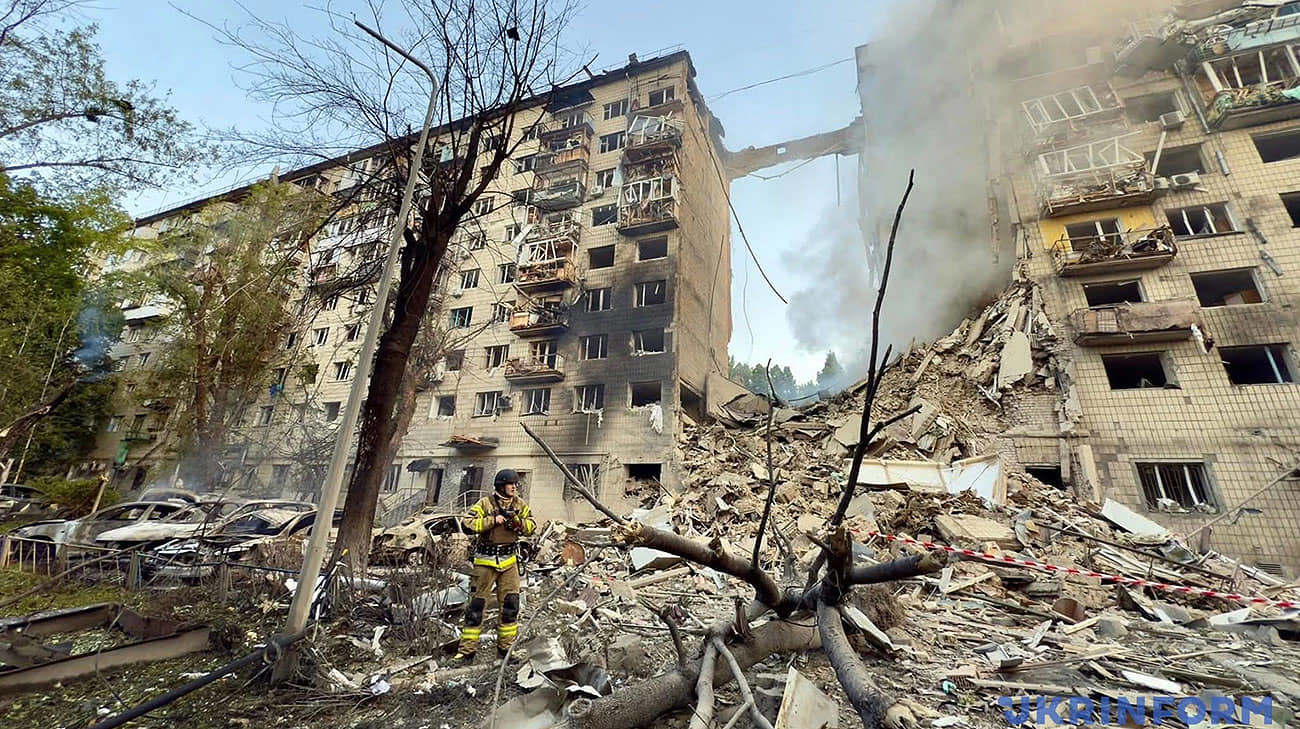Escalating Drone and Missile Barrages
In recent weeks, Russia has dramatically ramped up its aerial offensive against Ukraine, unleashing massive drone and missile strikes primarily targeting Kyiv. On July 21, Russian forces launched a coordinated assault with 426 drones and 24 missiles. The attack killed at least two people and injured 15—targeting civilian infrastructure including a kindergarten and a metro station used as a shelter. Similarly, on July 10, Ukraine endured nearly 10 hours of nonstop bombardment, which led to two deaths—including a 22‑year‑old metro police officer—and widespread damage in eight districts of the city.
Civilian Lives at Risk
These attacks aren’t restricted to military targets. A Russian missile strike on June 16–17 killed at least 14 civilians and injured more than 114 across 30 locations in Kyiv. This event marked the deadliest assault on the capital in nearly a year, according to a UN investigation. Hundreds of long-range drones and missiles are striking residential areas, schools, hospitals, and underground shelters packed with civilians.
Disrupting Daily Life
Night after night, Kyiv’s residents grapple with sleep deprivation and constant fear. Air raid alerts and explosions have become routine, forcing children and adults into basements and bathrooms to shelter amid the chaos. Health professionals report more recurring incidents of anxiety, depression, and memory loss among affected civilians. Additionally, the city’s policy to halt public transport during alerts—though meant to reduce risk—has had severe economic consequences, plunging many unemployed or stranded at home without essential services.
Diplomatic Fallout & International Response
Ukrainian President Volodymyr Zelenskyy labeled the drone waves an “assault on humanity,” urging the swift delivery of Patriot air-defense systems and greater Western support to stop Moscow’s escalation. In response, Germany pledged five Patriot systems, while the UK announced £700 million in air-defense aid and artillery, signaling deepening military support from Western allies. The EU rolled out its 18th sanctions package, targeting Russia’s energy sector and foreign banks.
Calls for Accountability and ICC Scrutiny
Human rights groups such as Fortify Rights have urged the International Criminal Court (ICC) to investigate these drone and missile attacks for potential war crimes, branding the strikes deliberate assaults on civilians in violation of international humanitarian law. Meanwhile, UN representatives at the Security Council described the missile barrage of June 16–17 as one of the worst attacks on Kyiv in the past year, emphasizing the urgent need for ceasefire momentum amid rising casualties—47% higher than the same period in 2024.
A City Under Siege
From childcare centers to subway stations, no place feels safe in Kyiv. The bombing of a kindergarten in Darnytskyi district, which left a crater and injured civilians including a 12-year-old, is a grim emblem of the war’s human toll. Fires from hit infrastructure are still smoldering in residential blocks, offices, and hospitals—exposing citizens to ongoing physical and psychological trauma across multiple attack nights.
What Lies Ahead
- More air defense systems are urgently needed to counter escalating drone swarms.
- Peace negotiations resume in Istanbul, though previous rounds have delivered limited results.
- ICC investigations and international sanctions may add pressure on Moscow, but accountability remains elusive.
Russia’s intensifying air campaign continues to put Kyiv civilians in the crossfire—fueling international calls for stronger defense support, diplomatic intervention, and a renewed push toward peace.


